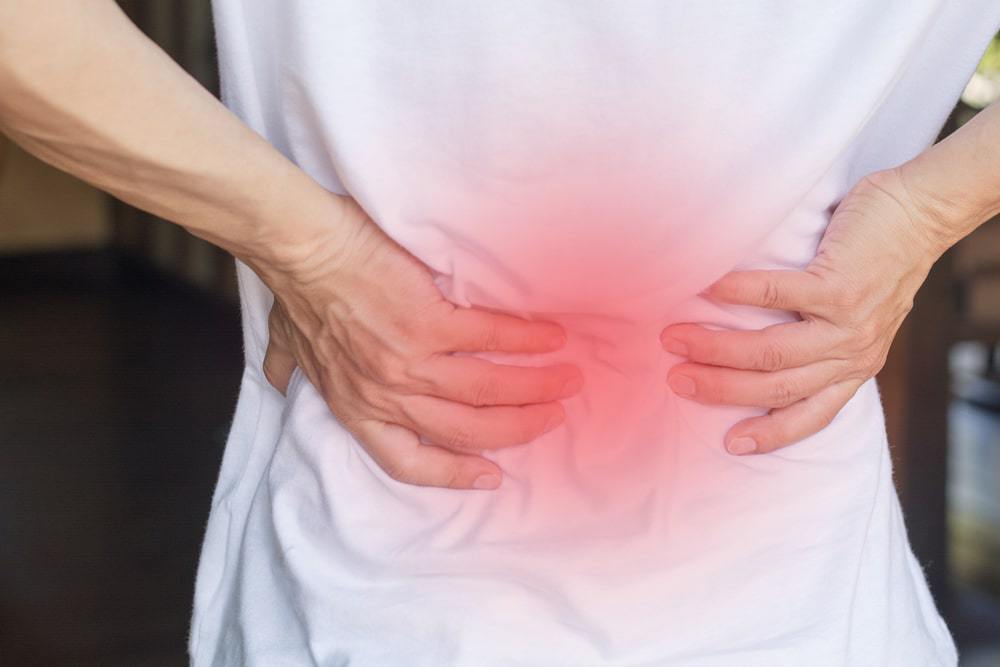You may have heard of a “bulging disc” or a “herniated disc” before, but do you know what the difference is? Most people get that a “slipped disc” or other disc-related issue has to do with the spine in some way. Many people don’t realize how much of a role the spinal discs play in your spine. Along with the vertebrae that stack atop one another to form your spine, there are also spinal discs. These spinal discs are located in between every vertebra to provide cushioning and support. If you suffer a disc herniation or bulging disc, then there is an issue with one of your spinal discs. Here’s what you need to know about a herniated disc vs. bulging disc, including the main differences, symptoms, and treatment options.
The Difference Between a Bulging Disc vs. Herniated Disc
There are some key differences to understand between a bulging disc vs. a herniated disc. The first is what actually happens to the spinal disc. With a bulging disc, the spinal disc can become flattened in some places and bulge in others. Similar to what a flat tire looks like, a bulging disc can look deflated and then bulge out of where it is normally located. On the other hand, with a herniated disc, the spinal disc actually cracks or tears, which causes the soft inner material of the disc to leak outside of its tough outer shell. The causes and symptoms of a spinal disc bulge vs. herniation can also be different.
Causes of a Herniated Disc vs. Bulging Disc
Bulging discs are more commonly associated with aging and the general wear and tear on the body over time. Spinal discs help to cushion in between vertebrae and also serve as shock absorbers for the spine. The soft inner part of the spinal disc and its tough outer shell allow the disc to have some flexibility while also preventing the bones of vertebrae from rubbing against one another. As we age, the discs can deteriorate, and the inside of a spinal disc can even start to dry out. When the spinal disc loses its elasticity over time, it can start to flatten or bulge downward, which is why a bulging disc is typically a degenerative condition.
A herniated disc is typically a more sudden condition and may be related to a specific injury to the spine. Unlike bulging discs, which can occur across all your spinal discs as you age, a herniated disc is often restricted to one affected spinal disc at a time. A car accident or sports injury can cause a herniated disc. When a herniated disc occurs, it is because the spinal disc separating two vertebrae cracks or gets torn. This causes the inside of the spinal disc to spill out and affect nearby nerves like a nerve root. With a herniated disc, you will likely start to experience symptoms right away, while you may notice symptoms of a bulging disc more gradually.
Symptoms of a Disc Bulge vs. Herniation
The symptoms for bulging discs tend to develop over time, known as a gradual onset. This means the pain and discomfort might get worse over time or start to occur in other places as well. There are nerves all around the spinal cord, so when an issue with a spinal disc or multiple discs occurs, it can cause nerve pain that may radiate out to other places in the body. Bulging discs are common in the lumbar spine and may start to cause pain in your hips, buttocks, legs, and back.
A herniated disc is most common in the cervical spine or the lumbar spine. The cervical spine refers to the spine in your neck, while the lumbar spine is located in your lower back. A common car accident injury like whiplash that affects your head and neck could lead to a disc herniation. A herniated disc will typically only cause symptoms like pain, tingling, and numbness in a particular area. That is because the herniated disc may aggravate a nearby nerve that controls a particular part of the body.
Treatment Options for Spinal Disc Issues
Visit AICA Orthopedics in Atlanta to learn more about treatment options for spinal disc issues, including bulging discs and a herniated disc. Our team of spine doctors is available at a variety of locations across metro Atlanta and can help you start experiencing pain relief from spinal disc issues.





